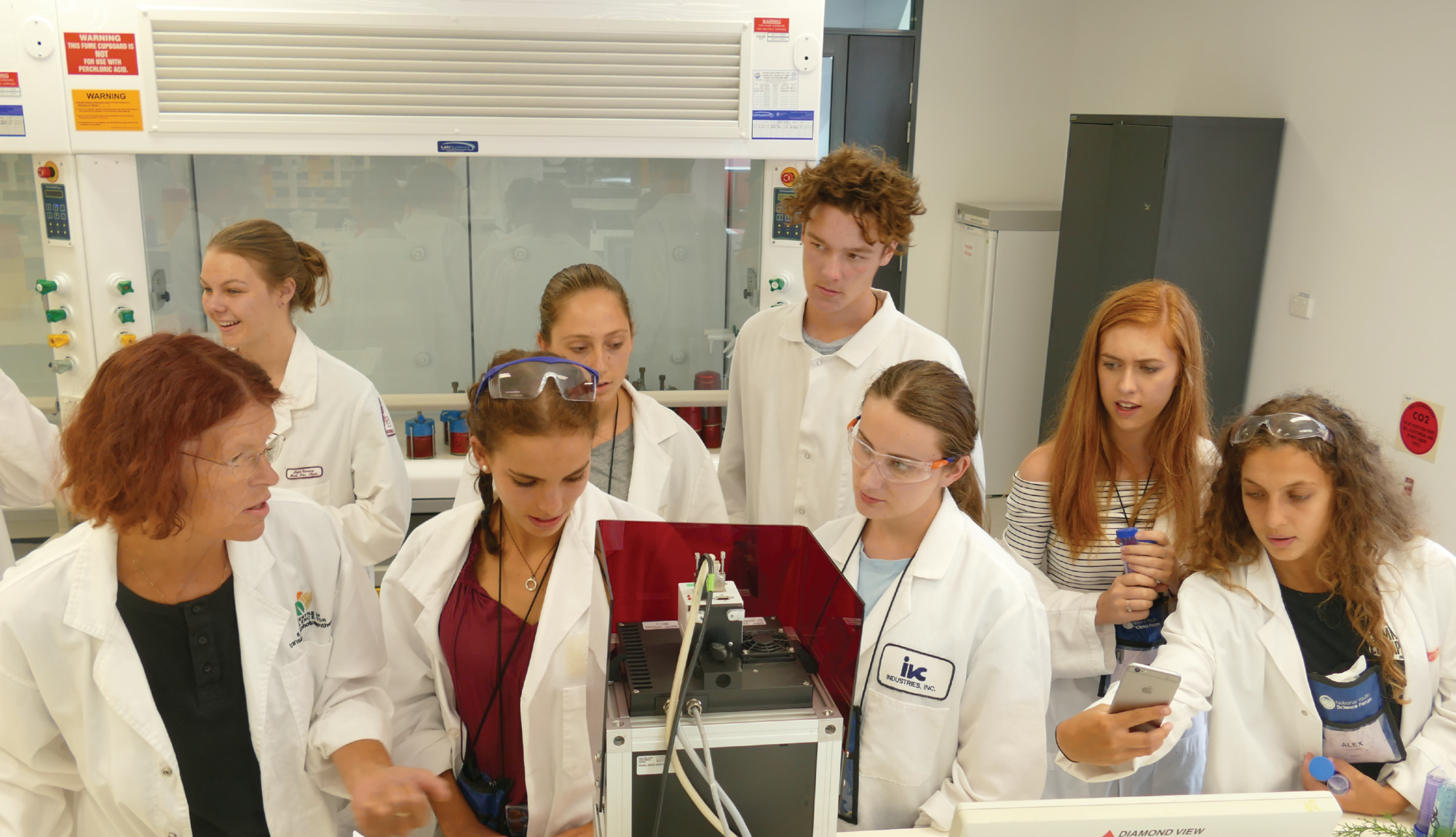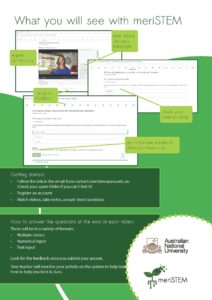About meriSTEM for students and parents
Welcome! You can register on the platform and start learning right now.
Our online program is designed primarily for teachers to use in conjunction with activities in class, so you should tell your teacher to join our teacher community to access free planning and lesson resources.
You’ll get a lot more out of our resources if you can convince your class (and teacher) to flip (more on that here). If that’s not available to you, you’re welcome to use meriSTEM freestyle!
Frequently Asked Questions
Will this actually help my learning?
Yes! Lots of different studies have shown that flipped classrooms result in better learning outcomes than traditional classrooms.
Is my ATAR safe?
Yes – in fact, it’s likely to be better if you’re taught with a flipped classroom, than if you were taught in a traditional classroom. The access to content on demand, coupled with better use of your teacher’s time, means that you’re likely to learn more and perform better on exams and in assignments.
Is this just a way for my teacher to get out of teaching?
Not at all – in fact, your teacher now has a much more active role in your learning. Now your teacher is spending their time actively helping you and your peers actually apply the things that you’ve learned, instead of just lecturing the entire class while the class takes notes.
Isn’t it important to be able to ask questions?
Yes. In this teaching method, you have more opportunities to ask questions because your teacher will not be spending class time carefully explaining things for the first time. Now, those explanations are captured in the videos, and your teacher can spend class time focussing on the parts you found difficult. A large part of your job while watching the videos is to figure out exactly what your questions should be.
What it looks like in practice
Week before: You were assigned a few short videos (such as this one) as homework to watch and take notes on. There is a multi-choice or short answer question after each one to check you were listening.
First class: Your teacher won’t talk much to the whole class. They’ll start by asking if you have any questions on the content. This is why it’s a great idea to add the ? to anything you didn’t understand in your notes.
You’ll quickly get onto activities. You’ll work with two or three other students on meriSTEM worksheets while the teacher comes around to help you out or challenge you if you need it. The worksheet activities have some practise drill type questions and some trickier problems.
Second class: Your teacher will be presenting your groups with a big, open-ended challenge question that brings the things you’ve just learn about to a real-world problem.
These questions connect the science back to practical, everyday situations, and develop your ability to define and solve problems beyond just plugging in the formulas. The teacher will prompt you to think like real scientists and engineers do, because they don’t have answers at the back of the books.
Third class: Experiment time! Some practicals with meriSTEM will help you develop fundamental lab skills while others are more open-ended, to help you learn to run your own experiments and projects completely.
Tips and Tricks
Pay short bursts of attention!
Videos replace the lecturing that might have previously taken place in class. You can get you explanation when you’re ready to sit down for 10 minutes and watch – at the kitchen table, on the bus or in the hammock. Different to being in class, you can also s l o w i t d o w n and PAUSE! it to take notes, change pen colour, or reply to that snapchat before concentrating again.
Take notes!
Take notes while you are watching the videos. Note-taking has demonstrated benefits for retaining information, and you’ll save time if you’ve already got the useful bits and the ? jotted down before class to ask your teacher.
Chat more to your teacher!
Classroom flipping means you will have more time working in small groups and less time with your teacher standing out the front. That means you can actually ask them questions which they’ll have time to answer, without the whole class listening. They want you to succeed, so ask them to help you.
Chat more to your classmates!
Sometimes your classmates can explain things better to you than your teacher because they’ve just learnt the content too. The best way to truly understand a concept is to teach it to someone else, so work with your group as much as possible.


